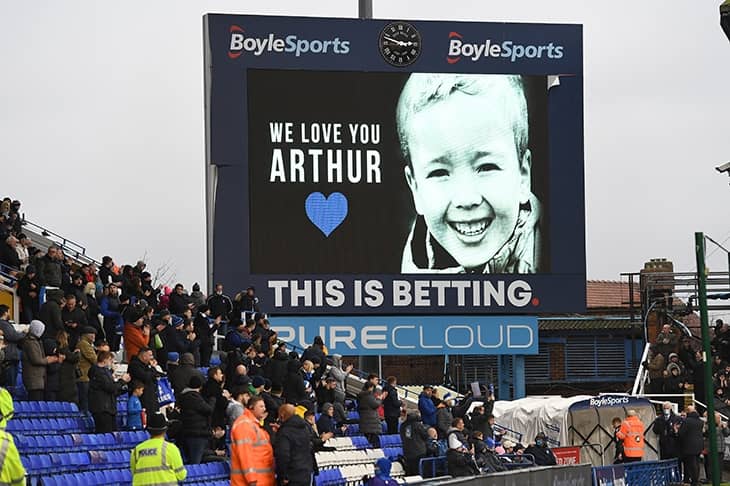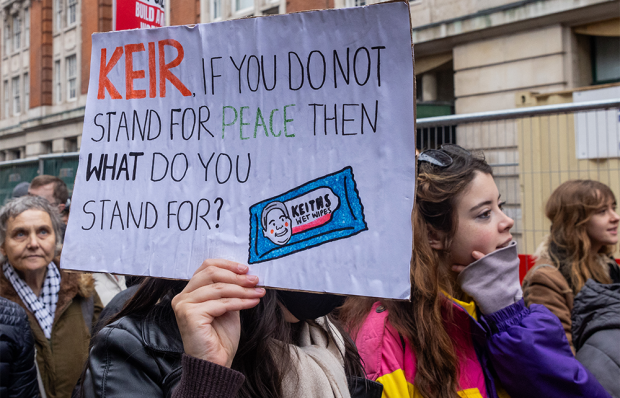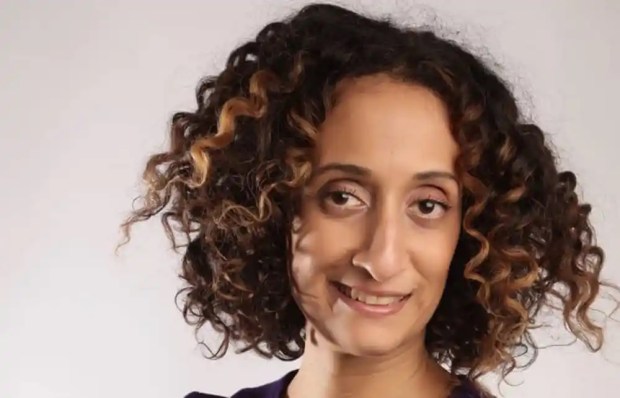Since I first read about the torture and murder of six-year-old Arthur Labinjo-Hughes, I’ve had what feels like an A-level philosophy class running in my head. There are still those of us who believe in God, and are preparing to celebrate the birth of His son in a week or so. But how is it possible to square the existence of a good and omni-potent God with what happened to Arthur, and to the other children who suffer in the same way?
Every year in this country, there are 50 or so children dead from abuse. Year in, year out, lockdown or not, that figure stays roughly the same. Is this original sin at work? Is it just the price we pay for free choice? If so, the price is too high. And anyway, what sort of freedom do violent addicts of the sort who surrounded Arthur actually have? You get the picture. It’s like an agonised Alpha course in here. I thought I’d long since got the problem of evil covered, but it turns out it’s just been lying dormant like a virus, waiting to reactivate.
My first mistake was probably to start reading about the case in the first place — though who could miss it now? I’m in two minds as to whether we have a duty to face these things, or whether we have a duty not to, for fear of rubber-necking. But I did start following it, months ago, and once you start pulling at the thread of a story like this, it’s impossible to stop. You need to know how such a thing could possibly come to pass and what humans are capable of.
Arthur was killed last year in lockdown by his father’s girlfriend, Emma Tustin, who tortured him, and persuaded his father to torture him, in ways I won’t relate. In part it’s an evil stepmother story of the sort we were warned about in the older, darker, more useful versions of fairytales: Sleeping Beauty, Cinderella, Hansel and Gretel. It worried me, as a child, how easily the fathers in these stories turned a blind eye to their own kids’ abuse, how in thrall they were to the latest wife.
In part, it’s a story from the chaotic underworld that we prefer to ignore, except as a poisonous dripfeed of thrilling horror enjoyed with morning cappuccino via Mail Online. Tustin is a controlling psychopath with some very serious issues. A previous boyfriend told the papers that when he tried to leave her, she jumped off the top floor of a multi-storey car park. Arthur’s own biological mother was a violent alcoholic who is currently doing time for stabbing her boyfriend to death. Arthur grew up surrounded by violence; then he lost his mum and gained Tustin.
Even if he’d survived the abuse, what sort of life would Arthur have had? If the problem of evil has come back to haunt me, it’s not because I can’t see that suffering can be redemptive — it’s because the whole set-up suddenly makes no sense. The most unloved, traumatised children have the highest chance of becoming unhappy, addicted adults. This vicious circle is built into the rules of the game. And what was the point of that, God? I’ve been meaning to ask.
It’s a sign of my existential disorientation that for once I looked to the established Church for answers, meaning I checked the Archbishop of Canterbury’s Twitter feed. When George Floyd died, for instance, Welby had a powerful message about the trauma of racist oppression. Nothing for Arthur as far as I can see, though there is no more oppressed or powerless group than the children born into situations like his, what-ever their colour or nationality.
Ten years ago I arrived back at my flat to find my husband blank with rage and despair. He was working at the Department for Education at the time, which was then the DCSF, including F for Families. There had been a child like Arthur killed in similar circumstances, with similarly catastrophic failures from both police and social services. What upset him most was that the official report had been so heavily redacted that no official could be blamed, thus ensuring that the same things would keep happening. At the time, I had an airy conviction that all suffering was an understandable part of the plan. I quoted some choice bits of Benedict XVI at him: ‘A person without suffering in the world in which we live would be a monster and impossible.’ I still believe that. But where does that leave Arthur? What good is a long, dark night of the soul to him or to any other children abandoned and abused?
The public reaction to Arthur’s death has been overwhelming, to the extent that it’s perfectly reasonable to think it distasteful. The house where the boy died is covered in flowers, and there have been six minutes of silence before football matches, a minute for each year of his life. Solihull Council has planted a ring of memorial trees, and now there’s a mural painted in Birmingham, a collaboration between rivals Aston Villa and Birmingham City.
In his last full term at school, in the winter of 2019, teachers reported that Arthur became so attached to the figure of Jesus in the school nativity scene that he’d cry if it was removed from the crib. The way I see it, in the absence of anything making sense, Arthur’s own instinct and this national grief is as close to a reassurance of God’s existence as I can find. Maybe it’s not mawkish, this reaction, but a form of national prayer, an attempt to suffer with someone and a subconscious conviction that it makes sense to do so, even after they’re dead.
Got something to add? Join the discussion and comment below.
Get 10 issues for just $10
Subscribe to The Spectator Australia today for the next 10 magazine issues, plus full online access, for just $10.
You might disagree with half of it, but you’ll enjoy reading all of it. Try your first month for free, then just $2 a week for the remainder of your first year.















Comments
Don't miss out
Join the conversation with other Spectator Australia readers. Subscribe to leave a comment.
SUBSCRIBEAlready a subscriber? Log in